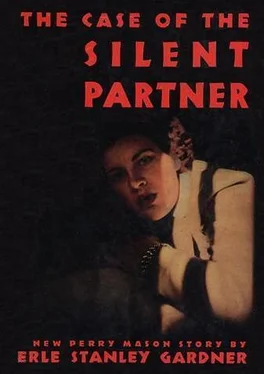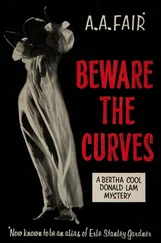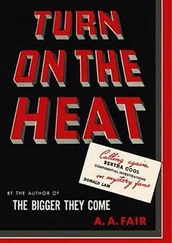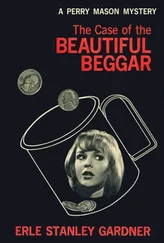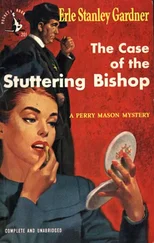Erle Gardner - Case of the Silent Partner
Здесь есть возможность читать онлайн «Erle Gardner - Case of the Silent Partner» весь текст электронной книги совершенно бесплатно (целиком полную версию без сокращений). В некоторых случаях можно слушать аудио, скачать через торрент в формате fb2 и присутствует краткое содержание. Город: New York, Год выпуска: 1940, Издательство: William Morrow, Жанр: Классический детектив, на английском языке. Описание произведения, (предисловие) а так же отзывы посетителей доступны на портале библиотеки ЛибКат.
- Название:Case of the Silent Partner
- Автор:
- Издательство:William Morrow
- Жанр:
- Год:1940
- Город:New York
- ISBN:нет данных
- Рейтинг книги:4 / 5. Голосов: 1
-
Избранное:Добавить в избранное
- Отзывы:
-
Ваша оценка:
- 80
- 1
- 2
- 3
- 4
- 5
Case of the Silent Partner: краткое содержание, описание и аннотация
Предлагаем к чтению аннотацию, описание, краткое содержание или предисловие (зависит от того, что написал сам автор книги «Case of the Silent Partner»). Если вы не нашли необходимую информацию о книге — напишите в комментариях, мы постараемся отыскать её.
Case of the Silent Partner — читать онлайн бесплатно полную книгу (весь текст) целиком
Ниже представлен текст книги, разбитый по страницам. Система сохранения места последней прочитанной страницы, позволяет с удобством читать онлайн бесплатно книгу «Case of the Silent Partner», без необходимости каждый раз заново искать на чём Вы остановились. Поставьте закладку, и сможете в любой момент перейти на страницу, на которой закончили чтение.
Интервал:
Закладка:
He slammed up the telephone, said to the cashier, “That’s all, Miss Norton. You can return to work.”
He gave Mason one quick glance. For a moment, the triumph in his eyes changed to sympathy. “Tough luck,” he said, “but you asked for it.” Then he pushed open the door of the glass-enclosed office and all but ran down the long length of the store.
Chapter 11
Lieutenant Tragg and Detective Copeland sat in the back room of the drugstore. Bill Copeland was reading one of the True Detective magazines he had filched from the newsstand. An old-timer, Copeland took everything in stride. He frequently said, “I’ve seen ’em come, and I’ve seen ’em go. I’ve been publicly praised for catching ’em, and given hell for letting ’em slip through my fingers. It’s all in the day’s work, and you can’t work yourself into a stew over it. You gotta take ’em as they come.”
Lieutenant Tragg was nervous. At frequent intervals he peered through the square of colored glass which enabled the prescription clerk to look out into the brightly illuminated store. Tragg carefully studied every customer, and between times nervously paced the floor or stared at the doors as though he could entice his prey simply by visual concentration.
The drug clerk, putting up an order of capsules, said, “No need to worry, Lieutenant. I know him personally. If he comes in, it’ll be for a prescription. You’ll have all the time in the world.”
Bill Copeland looked up from his magazine, surveyed Tragg with the expression of interrupted contentment with which a grazing cow studies a moving object. He seemed utterly incapable of understanding Tragg’s nervousness.
For the second time within five minutes, Tragg consulted his wrist watch. “Well, I can’t waste time waiting here. After all, it’s just a hunch.”
Copeland marked his place in the magazine with the nail of a stubby, thick forefinger. He said, “I’ll handle ’m, Lieutenant. Keep in touch with a phone, and you’ll know it within thirty seconds of the time I get him.”
Tragg said wearily, “I guess I’ll have to do that. I did want to...” He broke off as a man in a pinstriped, double-breasted blue suit walked quickly into the store, shook his head at the young woman who moved up from the cigar counter to wait on him, and said, in a voice plainly audible to those in the back room, “I want the prescription clerk.”
Tragg said to the clerk, “Take a look at this, will you?”
The clerk looked over Tragg’s shoulder, then gently pushed him aside in order to get a better view.
“That’s your man,” he said simply.
Tragg released a long-drawn sigh. Copeland started to close the magazine, then thought better of it, and laid it face down on a corner of the table used for filling prescriptions, leaving it spread open at the page he had been reading.
Tragg gave his orders quickly. “I’ll slip out the side door. Give him his prescription right away. Don’t keep him waiting. As soon as he starts for the door, Bill, you come out from behind here and start following. You have your car outside. I have mine. Between us he shouldn’t get away, but don’t take any chances. As soon as we get an idea where he’s headed, I’ll move on ahead. If he sees you, or starts acting as though he was suspicious, toot your horn twice. At your signal, I’ll swing in front, and we’ll grab him for the pinch.”
Copeland said, “Okay.”
The drug clerk walked out to the counter, came back in a few moments with the number of a prescription. “This is a refill on a powerful heart stimulant. He’s in a hurry, says it’s very urgent.”
Copeland adjusted his tie, straightened his coat, and patted the bulge over his hip. The prescription clerk said, “Take that magazine along if you want, officer,” and Copeland picked it up quickly. He rolled it up, shoved it under his left arm, holding it clamped against his side, and said, “Thanks.” Lieutenant Tragg slipped out of the shipping door into the alley, and walked around to the front of the drugstore, and got in his car.
He had less than two minutes to wait. His man jumped into a Buick sedan, and stepped on the starter. Behind him, Copeland, carrying his magazine clamped under his arm, appeared in the door of the drugstore, walked over to the curb, and wormed his broad shoulders in behind the steering wheel of a close-coupled coupe.
Tragg was the first away. In the rear-view mirror, he saw the Buick pull out next, and from the manner in which the car edged over to the left, decided the driver was going to make a left-hand turn.
Tragg gave a left-hand signal, and ventured timidly into the intersection, waiting for oncoming traffic to get past. This brought the car behind him up close to his bumper, and he saw his man hold out a left arm. Behind the Buick, Bill Copeland, plugging along in his light coupe, made the turn without bothering to signal.
Bob Lawley was in a hurry. He kept trying to get ahead of Tragg’s car, and at last Tragg let him go, following along closely behind. Copeland, taking his cue from the changed conditions, tagged along behind Tragg’s car.
Tragg, watching the man in the car ahead, saw that he apparently gave no thought of being followed. A dozen blocks down the street, Tragg had an opportunity to pass again. Lawley fooled him with an abrupt right-hand turn shortly after that, but Tragg, heading on down the street, saw that Copeland was tagging right along behind their quarry.
Tragg swung his car to the right at the next intersection, went to the first cross street, looked up and down the street, saw no sign of the cars he wanted, drove another block, and saw Copeland’s coupe parked in the middle of the block. There was no sign of the blue Buick.
Tragg swung his car into a sharp turn and drove up on the other side of the street, parking his car almost directly opposite the coupe.
Copeland got out and sauntered across.
“Get him?” Tragg asked, trying to keep nervousness out of his voice.
Copeland said casually, “He’s in there.”
“Where?”
“That bungalow. He swung his car into the driveway, and drove up to the garage. I stopped my car fifty feet back and waited to see if he was wise. I don’t think he was.”
“Where’d he go?”
“Inside, through the back door.”
It was that quarter hour after sunset when cool shadows merge imperceptibly into gathering dusk. Here and there in the block, lights had been switched on, but there were no lights showing in the windows of the little bungalow.
Tragg said, “Take the rear. Knock on the door, and tell him you want to look at the wiring. Say you’re from a radio station, and there’s a leak somewhere in the neighborhood. I’ll go to the front door and ring the bell hard just about the time you’re doing the talking. That should bring him up to the front. He’ll probably leave the back door unlocked. You walk in. If I have any trouble, grab him, and when you grab him, make a good job of it.”
“Okay,” Copeland said.
Tragg gave him ten seconds, then walked down the sidewalk, climbed the steps to the porch of the dark bungalow, and listened. He could hear steps and thought he could hear the rumble of voices in the back.
Tragg pressed the bell button, waited a second, then pressed it again, long, insistent rings.
Steps approached the door. Tragg loosened the gun in his shoulder holster. He was adjusting his tie when the door opened and Bob Lawley said, “What do you want?”
“You’ve just moved in, haven’t you?”
“That’s none of your business.”
“Oh, yes, it is, brother. I’m from the assessor’s office.”
“Well, this place is furnished, and was rented furnished. I don’t want to be interrupted, and...”
Читать дальшеИнтервал:
Закладка:
Похожие книги на «Case of the Silent Partner»
Представляем Вашему вниманию похожие книги на «Case of the Silent Partner» списком для выбора. Мы отобрали схожую по названию и смыслу литературу в надежде предоставить читателям больше вариантов отыскать новые, интересные, ещё непрочитанные произведения.
Обсуждение, отзывы о книге «Case of the Silent Partner» и просто собственные мнения читателей. Оставьте ваши комментарии, напишите, что Вы думаете о произведении, его смысле или главных героях. Укажите что конкретно понравилось, а что нет, и почему Вы так считаете.
